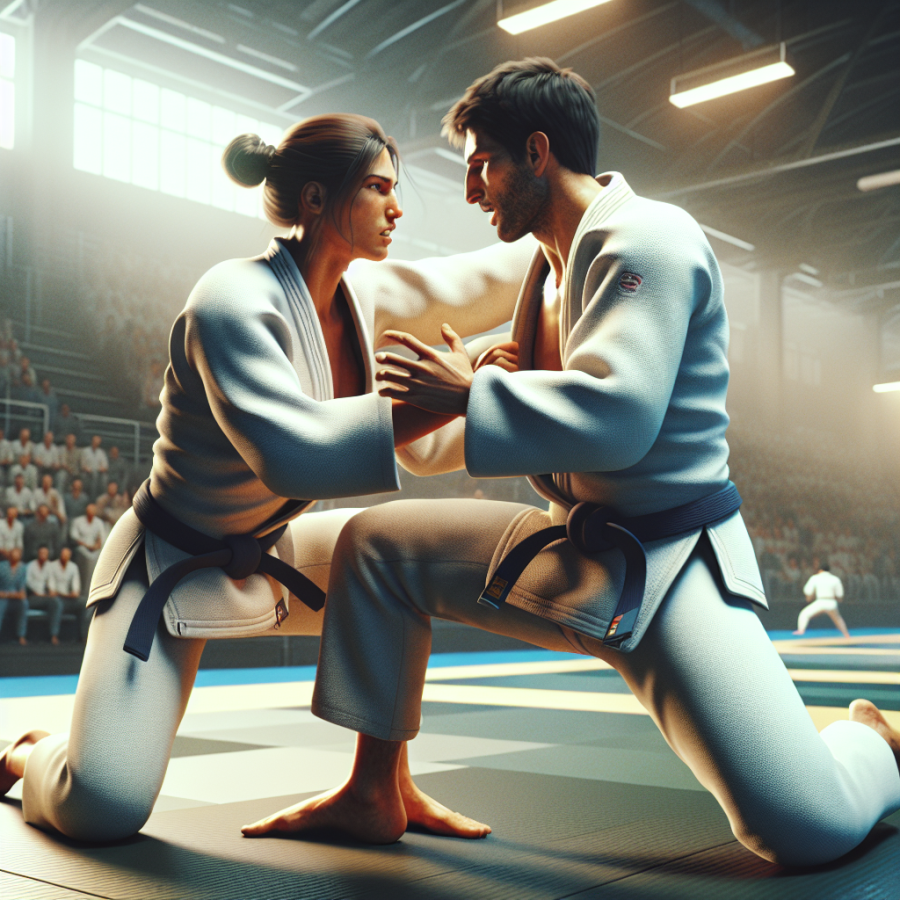Mastering the Mat: A Dive into the Intricate Techniques of Judo
Mastering the art of Judo requires a deep understanding of both its physical techniques and the philosophies that shape its practice. This ancient martial art is much more than a sport; it is a discipline that teaches balance, efficiency, and moral guidance both on and off the mat.
One of the foundational principles in Judo is the concept of "maximum efficiency, minimum effort," which is not only a technique for executing throws but also a philosophy for living. This principle is deeply intertwined with Judo techniques, as it emphasizes using an opponent's energy against them rather than opposing it directly. For example, when practicing the art of Kuzushi, or unbalancing, a Judo practitioner learns to read and manipulate the opponent's weight and momentum to effectively execute techniques such as throws or sweeps with as little physical force as necessary.
Throws (Nage-waza) are one of the most dynamic aspects of Judo. Each throw requires a detailed understanding of timing, balance, and movement. From the powerful hip throw, Harai Goshi, to the elegant foot sweep, De Ashi Barai, mastering these techniques demands constant practice and refinement. Integral to these techniques is the concept of Tsukuri, the act of fitting into the throw correctly, which sets up the proper position before execution. Understanding these nuances can turn a well-timed throw into an effortless and decisive victory on the mat.
Groundwork (Ne-waza) is another crucial element of Judo. While the throws may be the most visible aspect, much of a match can be spent grappling on the mat. Techniques such as holds (Osaekomi-waza), armlocks (Kansetsu-waza), and strangles (Shime-waza) make up a complex ground game that requires strategic thinking and adaptability. A Judoka must be capable of transitioning smoothly between these techniques, maintaining control while searching for an opening to apply a submission or pin.
Beyond the physical techniques, Judo also endorses a set of moral principles, encapsulated in the Judo moral code, which includes values such as courage, sincerity, honor, and modesty. These principles guide a judoka to strive for personal improvement and contribute positively to society. Furthermore, Judo's promotion system reflects this dual emphasis on skill and character development.
Understanding and internalizing the techniques and philosophies of Judo can be a lifelong journey.
Read also:
Exploring the World of Recreational Exercises: A Healthy and Fun Approach to Fitness
Beyond the Throw: Unraveling the Philosophical Tenets of Judo Culture
Judo is more than a physical exchange; it stands firmly on a foundation of philosophical principles that permeate the culture and practices of this dynamic martial art. Often referred to as "the gentle way," judo emphasizes the use of leverage and technique over brute strength, mirroring the idea that efficiency and intelligence triumph over recklessness and force.
Central to judo culture is the concept of 'jita-kyoei,' which translates roughly to mutual welfare and benefit. This principle encourages judo practitioners to respect their partners and understand that progress for one is progress for all. Training sessions, or randori, are not merely opportunities for individual improvement, but moments where both judokas can learn and grow. This communal focus emphasizes the importance of cooperation and social harmony within the practice of judo.
Additionally, judo espouses the idea of 'seiryoku zen'yo,' or maximum efficiency with minimum effort. This notion extends beyond the mat, encouraging judokas to approach life's challenges with calmness and strategic thinking. The flawless execution of a throw with minimal energy not only epitomizes technical proficiency but also reflects a broader philosophy that can be applied to conflict resolution, problem-solving, and leadership in everyday life.
The moral code of judo, developed by its founder Kano Jigoro, includes further virtues such as courage, sincerity, honor, and modesty. Each of these attributes is embedded within judo culture, shaping not just how practitioners engage with the sport but also how they conduct themselves in the wider world. The courage to face opponents, the sincerity in one's actions, honoring the traditions and opponents in judo, and the modesty to remain humble in victory or defeat are considered to be the cornerstone of a judoka's character.
Furthermore, judo culture places a strong emphasis on education and personal development. Kano Jigoro was an educator, and he saw judo as a means to nurture character and bolster self-discipline in young people. Through the disciplined practice of judo, individuals of all ages are thought to develop a strong work ethic, resilience, and a lifelong love of learning.
As judo practitioners advance, they also learn the importance of kata, or forms, which are pre-arranged patterns of movement that illustrate the fundamental principles of the martial art. Kata serves as a living encyclopedia of judo, preserving the knowledge and philosophy of generations past.




